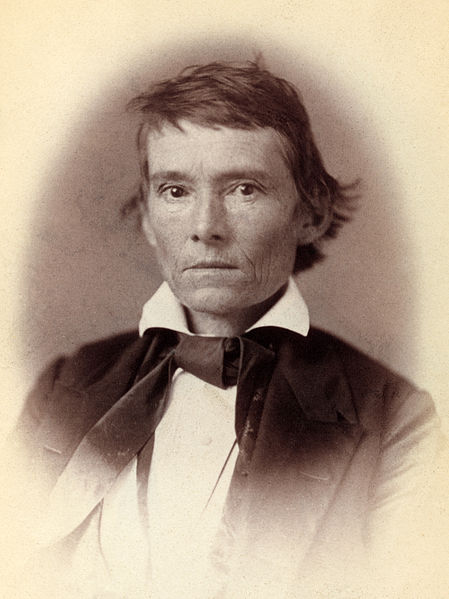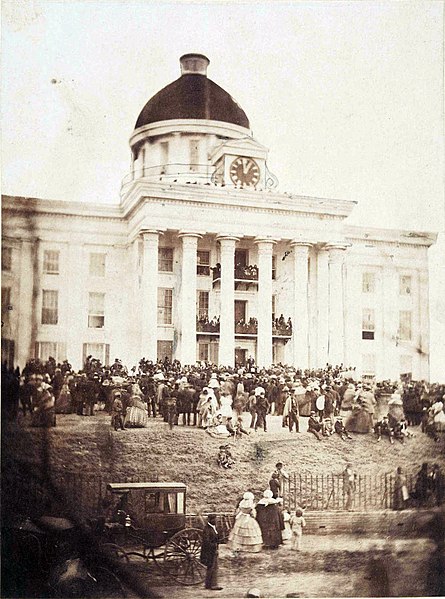North Carolina in the American Civil War
During the American Civil War, North Carolina joined the Confederacy with some reluctance, mainly due to the presence of Unionist sentiment within the state. A popular vote in February, 1861 on the issue of secession was won by the unionists but not by a wide margin. This slight lean in favor of staying in the Union would shift towards the Confederacy in response to Abraham Lincoln's April 15 proclamation that requested 75,000 troops from all Union states, leading to North Carolina's secession. Similar to Arkansas, Tennessee, and Virginia, North Carolina wished to remain uninvolved in the likely war but felt forced to pick a side by the proclamation. Throughout the war, North Carolina widely remained a divided state. The population within the Appalachian Mountains in the western part of the state contained large pockets of Unionism. Even so, North Carolina would help contribute a significant amount of troops to the Confederacy, and channel many vital supplies through the major port of Wilmington, in defiance of the Union blockade.

Great Seal (1836–1883)
"Colored Troops, Under Gen. Wild, Liberating Slaves in North Carolina" (Harper's Weekly, January 23, 1864)
Union propaganda showing North Carolina's Seal being held by the Devil
"Silent Sam" Confederate memorial on the University of North Carolina at Chapel Hill campus (now removed)
Confederate States of America
The Confederate States of America (CSA), commonly referred to as the Confederate States (C.S.), the Confederacy, or the South, was an unrecognized breakaway republic in the Southern United States that existed from February 8, 1861, to May 9, 1865. The Confederacy comprised eleven U.S. states that declared secession and warred against the United States during the American Civil War. The states were South Carolina, Mississippi, Florida, Alabama, Georgia, Louisiana, Texas, Virginia, Arkansas, Tennessee, and North Carolina.
Alexander H. Stephens, Confederate Vice President and author of the Cornerstone Speech
William L. Yancey, Alabama Fire-Eater, "The Orator of Secession"
William Henry Gist, Governor of South Carolina, called the Secessionist Convention
The inauguration of Jefferson Davis in Montgomery, Alabama








